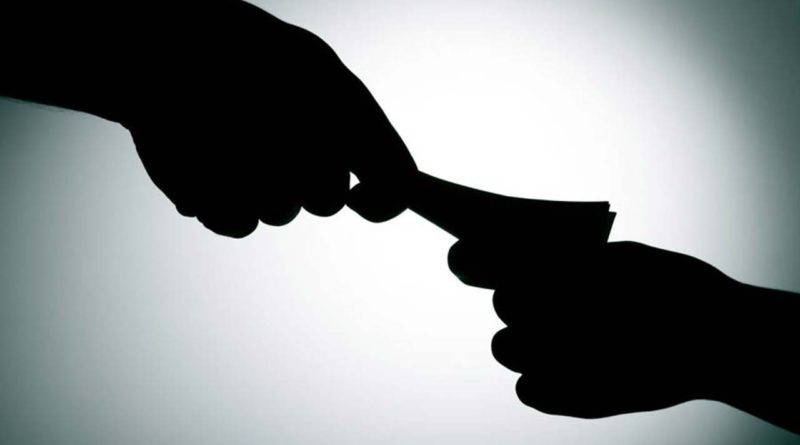Corruption, the law and Nigeria’s leaders
One of the unfortunate impressions, even attributes, of the Nigerian justice system has been an appearance of lack of capacity and the will to prosecute highly placed government officials, serving or former, who have been indicted for corruption.
This failure has given room for further acts of crude impunity and wanton disregard for codes of ethical behaviour hitherto associated with public service. Members of the nation’s political elite have become overlords in a manor over which they have infinite control. For lesser mortals, all they have is disdain. However, this appears to be changing as, the other day, a Federal High Court in Abuja under Justice Adebukola Banjoko took the gauntlet, ignored possible political correctness, real or imaginary, and sent two former state governors to jail. This is a welcome development and signposts the readiness of the Bench to help deal with corruption. If Nigeria’s judges and law courts cannot or fail to mete out justice to certain persons, then all hope for the creation of a just and fair society will be lost.
Former governors Joshua Dariye of Plateau State and Jolly Nyame of Taraba State were on different occasions sent to 14-year jail terms, having been found guilty of corruption. Expressing moral outrage, certainly on behalf of the people, Justice Banjoko said that Nyame ‘behaved like a common thief with an unbridled greed.’ Continuing, the distinguished judge remarked; ‘I am morally outraged with the fact of this case… he is an unrepentant sinner or the most audacious chief executive Nigeria ever had.’ Also, on the 12th of June 2018, Dariye was found guilty of defrauding the state government of Plateau over which he presided to the tune of N1.2 billion during his years in office. Earlier, on May 30, 2018, Nyame, a reverend gentleman, had been convicted by the same Justice Banjoko for defrauding the Taraba State government of N1.6 billion, in criminal breach of trust and gratification while he presided over the affairs of the state between 1999 and 2007.
This newspaper has always advocated the development of strong institutions for the purposes of breathing viability into the Nigerian national life. It has been established worldwide that strong men will come and go but only institutions, based on and guided by law as well as sound ethical principles can never go wrong. The UN states that ‘effective, accountable and inclusive institutions are essential to achieving the Sustainable Development Goals.’ Indeed, the new 2030 Agenda observes that peaceful and just societies are built based ‘on effective rule of law and good governance.’ Transparency International (TI) has asserted that ‘an effective judiciary guarantees fairness in legal processes. It’s a powerful weapon against corruption.’ Ideally, the judiciary ‘is perceived in most of the countries as the last remedy to inequalities, human rights violations and abuses against the most vulnerable.’ But in real practice, some judges and court officials, including prosecutors and court clerks are compromised. With money or pressure from politicians and some members of the ruling elite, the wheel of justice is often slowed down unnecessarily or the course of justice is perverted outrightly.
The Nigerian judiciary in the last 20 odd years has been severely bastardised by alleged and proven cases of deep corruption. Some judges, ostensibly the moral bastion of the legal system, standing in place of God, have descended into the whirlpool of common thievery by accumulating fantastic riches through selling justice to the highest bidders. This obnoxious practice became somewhat established in the post-elections arbitrations and appeals. It came to be known that retired judges often serve as consultants to serving ones and collect bribe monies on their behalf. Lawyers (some of them Senior Advocates of Nigeria) are known to have paid monies into judges’ accounts in the guise of support for a ceremony or some other activity. The tar of corruption has also stained some serving justices of the Supreme Court and the Court of Appeal. In effect, there are hardly exemptions when it comes to the echelons to which corruption stretches its tentacles.
English poet Geoffrey Chaucer asks the rhetorical question: ‘If gold rust, what will iron do? Alas, it seems the metaphorical gold is scarce in the Nigerian landscape.Corruption in the Nigerian justice system comes in different guises. The first stage is the investigative process. Police officers cannot be said to be diligent in their duties. While some officers do a shoddy job, others are bought over with filthy lucre to present reports that are palpably incredible and easily faulted. Some lawyers and judges sometimes connive to thwart the course of justice. They prolong litigation through unnecessary and long adjournments.
As the Dariye and Nyame cases have shown, examples need to be made of people in high places for Nigerians to know corruption does not pay. As has been repeatedly said, if Nigeria does not kill corruption, the menace will kill the country. And the judiciary is key to saving Nigeria from such an unfortunate fate.
The Guardian, Nigera

